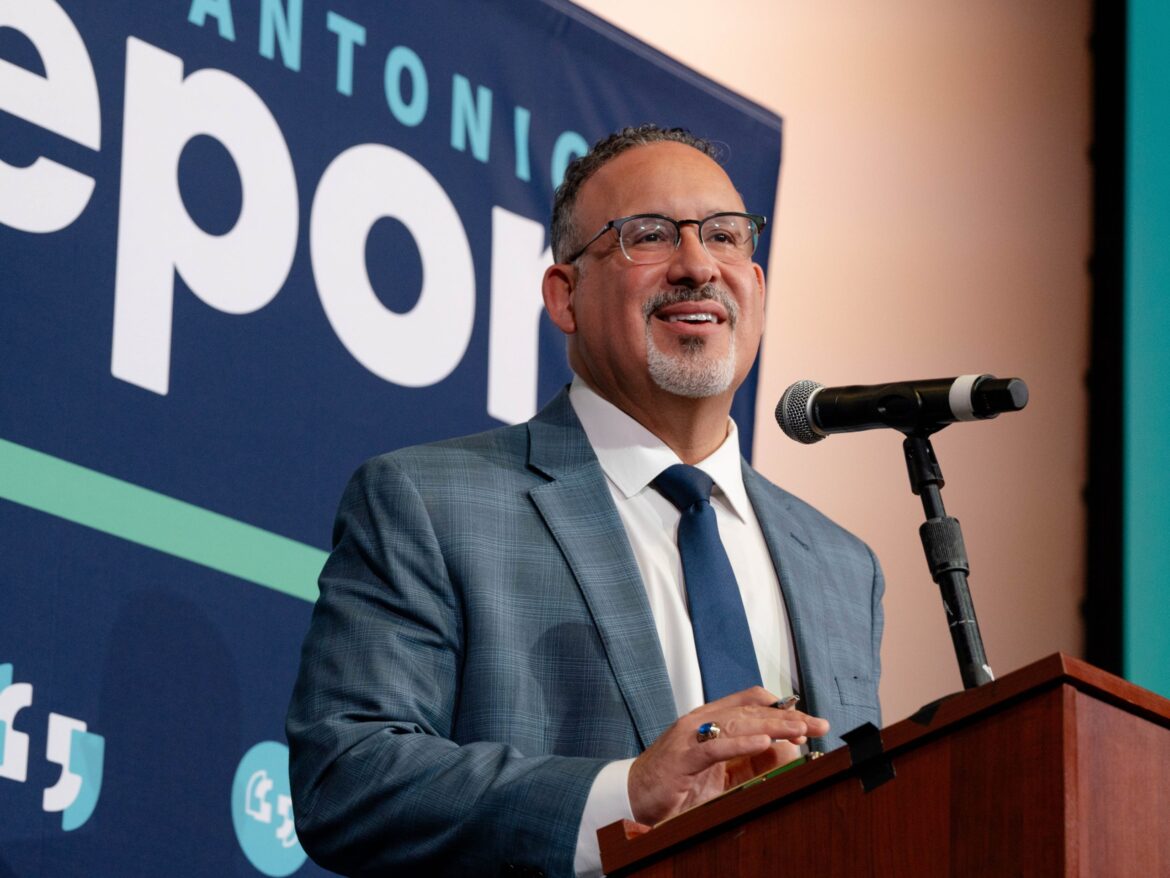Miguel Cardona Advocates for Public Education at San Antonio Education Forum
During the San Antonio Report’s tenth annual Education Forum, U.S. Secretary of Education Miguel Cardona expressed serious concerns regarding the potential ramifications of a reduced Department of Education. He criticized the increasing trend towards school vouchers and underscored the necessity of strong leadership and community involvement in public education.
As a first-generation college graduate who began his career as a fourth-grade teacher, Cardona has played a significant role in guiding the U.S. Department of Education, particularly in initiatives like the reopening of schools amidst the COVID-19 pandemic and the approval of significant student loan forgiveness efforts.
Teamwork in Times of Change
Addressing more than 200 community and educational leaders, Secretary Cardona referred to previous actions taken under President Donald Trump, specifically noting attempts to reduce the Department of Education’s workforce and funding. Among these changes was the dismantlement of the Office for English Language Acquisition, which supports language learners across the nation.
Cardona, who is an English learner and former bilingual teacher, pointed out that this decision contradicted the needs of a diverse population, with approximately 29% of students nationwide identifying as Hispanic or Latino. In Texas, where this percentage exceeds 50%, he remarked, “Bilingualism is a superpower.”
He elaborated that diminished departmental resources could further disadvantage the most vulnerable students, particularly those reliant on Title I and Individuals with Disabilities Education Act (IDEA) funding.
Concerns Over Education Funding
Secretary Cardona highlighted that federal funding typically comprises about 10% of school budgets, but in districts like San Antonio Independent School District (SAISD), it accounts for up to 17%. Superintendent Jaime Aquino expressed that these federal dollars are vital, noting the district’s decision to forego summer school for most students due to anticipated funding reductions.
In response to inquiries about the possibility of a restored Department of Education under future administrations, Cardona stated that while a return to the department’s previous form may be unlikely, he foresaw some rebuilding efforts aimed at reinforcing student protections.
Opposition to School Vouchers
With the Texas Legislature considering school vouchers that redirect taxpayer funds to private education, Cardona voiced his opposition, arguing that such measures exacerbate inequities within the education system. “The local public school should always be a viable option,” he stated, emphasizing that utilizing public funds for private schooling risks creating a divided educational landscape.
He pointed out that many private institutions, when funded through vouchers, may select students based on their enrollment patterns, potentially leading to the exclusion of students who require additional support.
As funding uncertainties loom, San Antonio’s educational leaders are gathering data to inform families about the implications of school vouchers on their children’s schooling choices.
The Importance of Leadership and Collaboration
Cardona, however, expressed optimism about the future of education, asserting that the current challenges also present opportunities for growth in leadership. He highlighted his achievements, which include significant reforms to the Free Application for Federal Student Aid (FAFSA), resulting in the enrollment of more students qualifying for aid.
“We need to focus on the common ground,” he urged, calling for cooperation across political lines to prioritize comprehensive educational needs, including literacy, student safety, and equitable access to higher education.
Karla Duran, a member of the Northside Independent School District board, echoed Cardona’s call for lush investment in education, noting its financial benefits compared to the costs associated with incarceration. Associate Emily Calderón Galdeano from the nonprofit UP Partnership asserted the importance of youth voices in catalyzing positive change in education.

